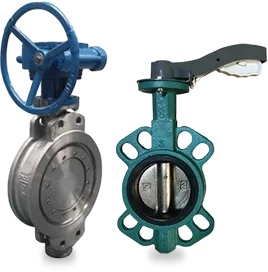High-Quality Precision Needle Valve Manufacturing for Diverse Industrial Applications and Solutions
Precision Needle Valve Manufacturing A Cornerstone of Fluid Control Technology
In today's rapidly evolving industrial landscape, precision needle valves represent a critical component in the fluid control systems of a variety of applications, from pharmaceuticals to petrochemicals. These valves are engineered to provide exceptional control over fluid flow, allowing for accurate adjustments that are vital to maintaining the integrity and efficiency of processes in various sectors.
The Importance of Precision Needle Valves
Precision needle valves are designed to regulate the flow of fluids with remarkable accuracy. Their construction typically features a long, tapered needle that fits into a seat, enabling highly precise adjustments to the flow rate. This makes them indispensable in applications where minute changes can have significant impacts. For instance, in laboratories, precise fluid measurement is crucial for experiments and formulations, while in the oil and gas industry, these valves help manage the flow of hydrocarbons under varying pressures.
The demand for precision needle valves is increasing as industries seek to enhance their operational efficiency and minimize wastage. As technology progresses, the need for more reliable and sophisticated fluid control systems becomes more pronounced. This is where specialized manufacturing processes come into play.
Manufacturing Process
The manufacturing of precision needle valves involves several critical steps that ensure their accuracy and durability. First and foremost, high-quality materials such as stainless steel, brass, or specialized alloys are selected to withstand the demands of various environments. These materials must not only resist corrosion but also endure high pressures and temperatures, depending on their application.
The next step in the manufacturing process is the machining of components. Advanced CNC (Computer Numerical Control) machining techniques are often utilized to achieve the necessary tolerances. These machines can create intricate designs with precision that human operators could hardly replicate manually. Each valve is meticulously crafted, with a focus on dimensional accuracy and surface finish, which are crucial for ensuring proper sealing and functionality.
precision needle valve factory

Following machining, the components undergo rigorous quality control checks. Using advanced inspection technologies such as coordinate measuring machines (CMM) and laser measurement systems, manufacturers can verify that each part meets the exact specifications required for a high-performance valve.
After inspection, the components are assembled. This step requires expert knowledge to ensure that the assembly process maintains the valve's precision characteristics. Sealing mechanisms and seat alignment are particularly critical, as any misalignment can lead to leaks or inaccurate flow control.
Importance of Collaboration and Customization
The modern manufacturing landscape emphasizes collaboration between manufacturers and clients to develop customized solutions that meet specific needs. Precision needle valves are no exception. Many manufacturers now offer bespoke designs tailored to the unique demands of different applications. This customization process not only ensures that clients receive products perfectly suited to their requirements but also fosters innovation within the field.
Collaboration can extend beyond design and manufacturing. Some manufacturers also provide technical support and guidance on installation and maintenance, helping clients maximize the performance and lifespan of their valves. This full-service approach strengthens relationships and builds long-term partnerships.
Conclusion
In conclusion, the manufacturing of precision needle valves stands as a testament to the advancements in fluid control technology. These valves are essential for a multitude of industries that require precise flow regulation and operate under demanding conditions. With a strong focus on quality, customization, and collaboration, modern manufacturing practices are well-equipped to meet the evolving challenges of the industry. As technology continues to advance, the role of precision needle valves in ensuring operational efficiency and reliability in fluid systems will only grow more significant, reinforcing their status as a cornerstone of fluid control technology.
-
3-types-of-check-valves-maintenance-tipsNewsAug.23,2025
-
ball-valves-types-with-trunnion-mounted-designNewsAug.23,2025
-
butterfly-valve-company-production-capabilitiesNewsAug.23,2025
-
fisher-globe-valve-technical-specificationsNewsAug.23,2025
-
types-of-gaskets-for-flanges-selection-guideNewsAug.23,2025
-
wedge-gate-valve-suppliers-quality-standardsNewsAug.23,2025
-
Breakthrough in Domestic Low Temperature Valve Technology in ChinaNewsAug.18,2025




